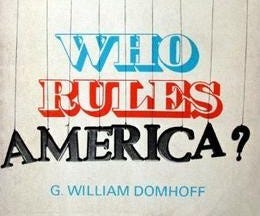Empire or Republic?
Imperialist policies undermine the constitutional principles of the Republic
The concentration of industrial enterprises during the second half of the nineteenth century greatly increased the productive capacity of the U.S. national economy, which had the unintended consequence of the problem of overproduction, that is, the production of goods in excess of the capacity of the national market to buy. The problem became evident during the Great Depression of 1892-1893, and it led the financial/industrial elite to formulate a new expansionist foreign policy as a solution. The basic goal of the new policy, which its promoters called “imperialism,” was to find new markets outside the United States for U.S. manufacturing and agricultural products.
Imperialist policies first appeared in public discourse in the Republican Party platform of 1896, which challenged the prevailing isolationism of the political culture; the platform advocated an expansion of military expenditures and the establishment of military bases abroad. The Philippines, Hawaii, and Cuba…


